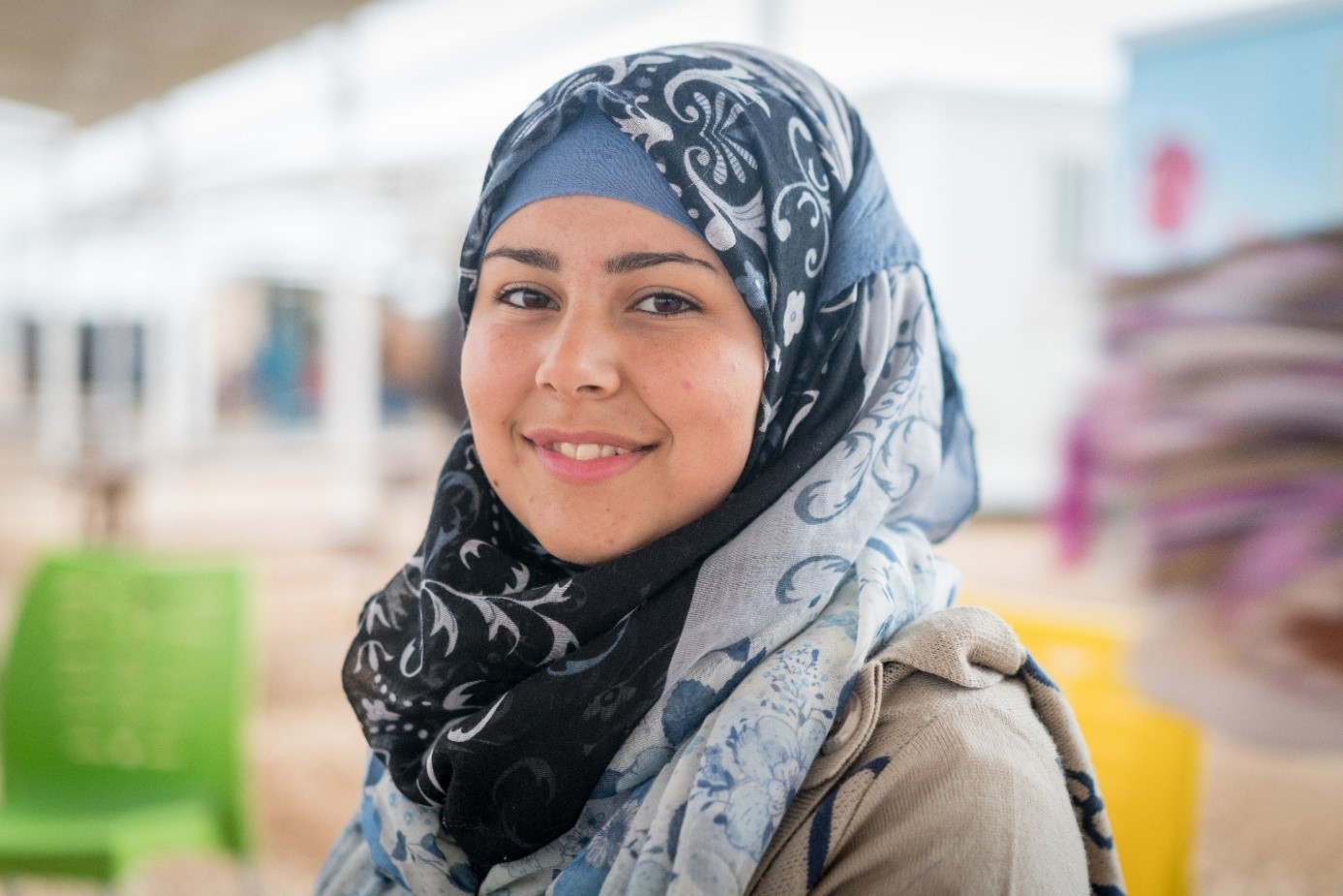From where I stand: Zaad Al-khair
From where I stand: Zaad Al-khair

“The day I fled to Jordan there was heavy shelling in my neighbourhood. There were bombings close to our house. It was very dangerous. We had no choice but to run away. In those moments of panic, my brothers and my sister could not be found and leaving behind part of my family has been the hardest thing to do. After a while we heard that my brother was killed on that day. My mother was devastated. On that day, many mothers were grieving.
I hope the war will finish soon, so that we can go back to Syria and be reunited with my other brother and sister.
When I arrived in the Za’atari refugee camp, I went back to school and started to build new friendships. I come to the UN Women Oasis every day because I want to meet my Jordanian and Syrian friends. Many of my girlfriends left school and got married at age 15, and they already have children. Many people ask me why I’m not married yet but I think it’s too early. Luckily my family is supportive that I finish school first. My dream is actually to go to university.
My mother works in the Oasis producing handicrafts along with my father, who is teaching women how to produce accessories, such as jewellery made from dates and coffee beans. I work as a journalist for the camp magazine, helping to share information and practice my English. In the camp I learned English also because I want to be a translator, so that maybe one day I can tell the whole world what has happened in Syria.”
Zaad Al-khair, 17, is a Syrian refugee living in the Za’atari refugee camp in Jordan, home to approximately 80,000 Syrians—80 per cent of whom are women and girls. Working hard to complete her studies and access higher education, she was among the first girls to work as journalists for the camp’s magazine. Both her parents are enrolled in a cash-for-work programme at one of UN Women’s three ‘Oasis’ safe spaces in the camp, which also provide literacy classes, daycare, protection services and more to some 16,000 people a year. This work is directly related to Sustainable Development Goal 1, on ending poverty and SDG 3, on ensuring equitable quality education for all. Zaad also contributes to SDG 16, on promoting peaceful and inclusive societies for sustainable development, including by ensuring public access to information.